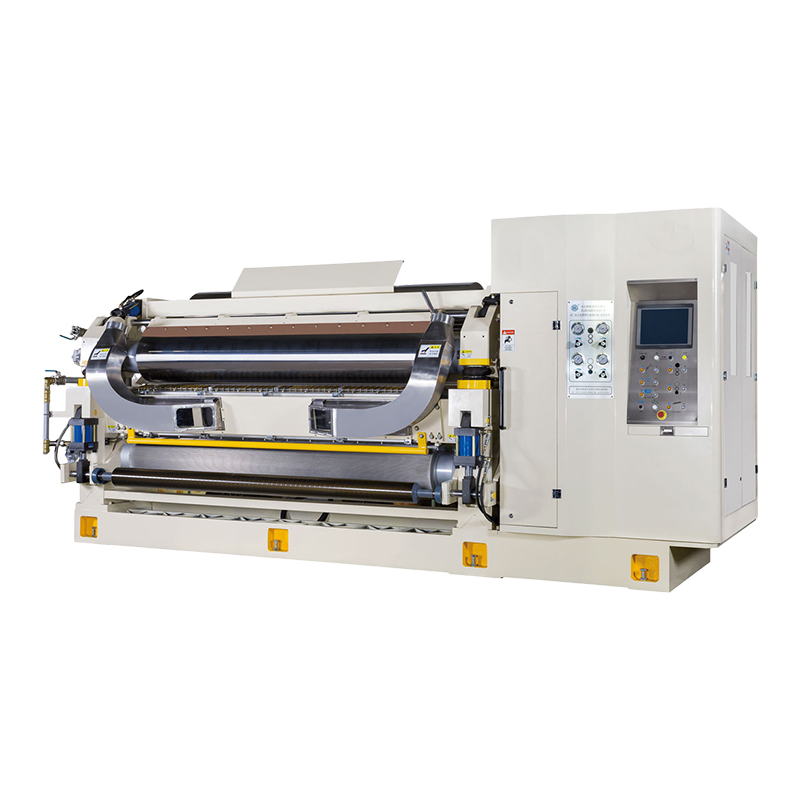When it comes to eco-friendly packaging solutions, corrugated cardboard production stands out as one of sustainable options. Not only does it provide a sturdy and versatile packaging material, but it is also highly recyclable and made from renewable resources. From the perspective of the corrugated carton machine, the production process itself offers numerous environmental benefits that help reduce waste, save energy, and promote a circular economy.

1. Recyclability and Reduced Waste
One of significant environmental benefits of corrugated cardboard production is its recyclability. Corrugated cardboard is made from wood pulp, which is a renewable resource, and it can be recycled multiple times without losing its strength or quality. The corrugated carton machine plays a crucial role in this process by producing boxes that can easily be reused or recycled at the end of their life cycle.
When businesses choose corrugated carton packaging, they are opting for a material that can be recycled back into new cardboard products, reducing the need for virgin materials. This closed-loop system helps to decrease waste sent to landfills and reduces the environmental burden of producing new packaging materials. In fact, corrugated cardboard boasts one of high recycling rates among packaging materials, with a large percentage of used boxes being recycled each year.
2. Sustainable Raw Materials
The corrugated cardboard production process uses primarily recycled paper and wood pulp as its raw materials. This means that the production of corrugated boxes requires fewer natural resources compared to other packaging options made from plastic or non-renewable materials. The corrugated carton machine uses paper, which is sourced from sustainably managed forests and recycled paper, further ensuring the sustainability of the production process.
By choosing corrugated carton packaging, businesses contribute to reducing deforestation and the environmental impact associated with extracting raw materials. Sustainable forestry practices, coupled with the use of recycled paper, help to maintain healthy ecosystems while providing the raw materials needed for packaging.
3. Energy Efficiency
Another key environmental benefit of corrugated cardboard production is its energy efficiency. The manufacturing process for corrugated cardboard is relatively energy-efficient compared to the production of other packaging materials, such as plastic or metal. The corrugated carton machine operates using advanced technology that optimizes energy use, reducing the carbon footprint of packaging production.
Additionally, many corrugated cardboard manufacturers are adopting renewable energy sources to power their operations. By utilizing solar, wind, or hydroelectric power, these companies are further reducing their environmental impact. The energy savings from using renewable resources, combined with the inherent efficiency of the corrugated carton machine, makes corrugated cardboard production a more sustainable choice for packaging.
4. Lower Carbon Footprint
The corrugated cardboard production process generally has a lower carbon footprint than the production of other packaging materials, such as plastic or styrofoam. This is because the materials used in corrugated cardboard are renewable, and the production process is energy-efficient. The corrugated carton machine also contributes to this lower carbon footprint by producing lightweight boxes that require less energy to transport, reducing fuel consumption during the distribution process.
Additionally, corrugated cardboard is biodegradable, unlike plastic, which can persist in the environment for hundreds of years. If corrugated carton packaging ends up in landfills, it decomposes relatively quickly, unlike other materials that contribute to long-term pollution.
5. Reduced Environmental Impact of Transportation
The lightweight nature of corrugated carton packaging further enhances its environmental benefits. Since corrugated cardboard is both strong and lightweight, it reduces the need for heavy packaging materials that can increase transportation costs and fuel consumption. This is particularly important in an era where reducing greenhouse gas emissions from transportation is a key objective.
The corrugated carton machine ensures that the packaging produced is not only durable and reliable but also efficient in terms of logistics. By using less fuel to transport corrugated carton packaging, businesses help to reduce their carbon footprint across the entire supply chain. Moreover, the ease with which corrugated boxes can be stacked and stored improves space efficiency during transport, further reducing the environmental impact of shipping.
Corrugated cardboard production offers a range of environmental benefits that make it an ideal choice for businesses seeking to reduce their ecological footprint. From its high recyclability and use of sustainable raw materials to its energy efficiency and low carbon footprint, corrugated cardboard stands out as an eco-friendly packaging solution. The corrugated carton machine is at the heart of this process, ensuring that the production of corrugated carton packaging is efficient and sustainable. As businesses continue to prioritize sustainability, choosing corrugated cardboard for packaging will play an increasingly important role in promoting a greener, more environmentally responsible future.

 English
English  Español
Español  Português
Português  عربى
عربى 




